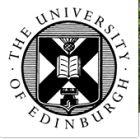Within the short span of a human life and with man's limited powers of memory, any stock of knowledge worthy of the name is unattainable except by the greatest mental economy. Science itself, therefore, may be regarded as a minimal problem, consisting of the completest possible presentment of facts with the least possible expenditure of thought.
Ernst Mach, The Science of Mechanics: A Critical and Historical Account of Its Development (1893) p. 490, Tr. Thomas J. McCormack.
